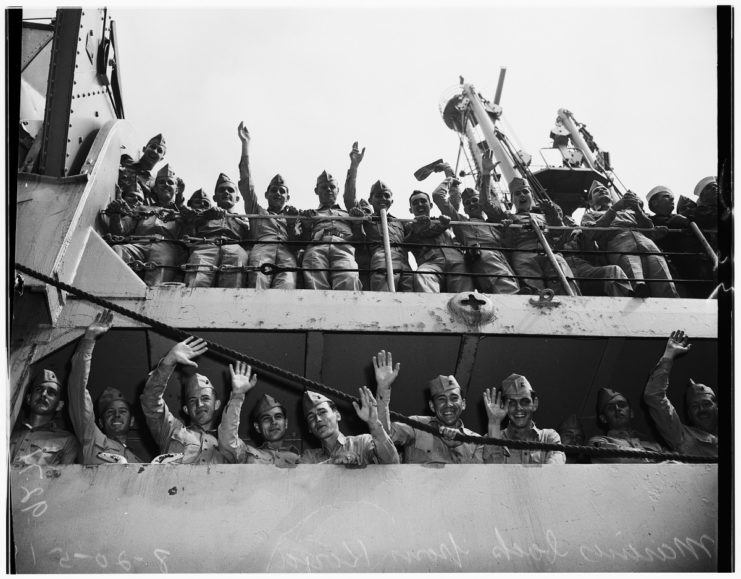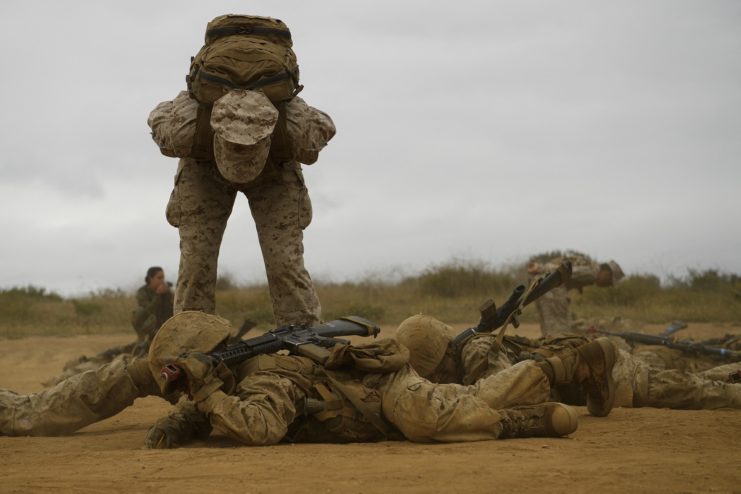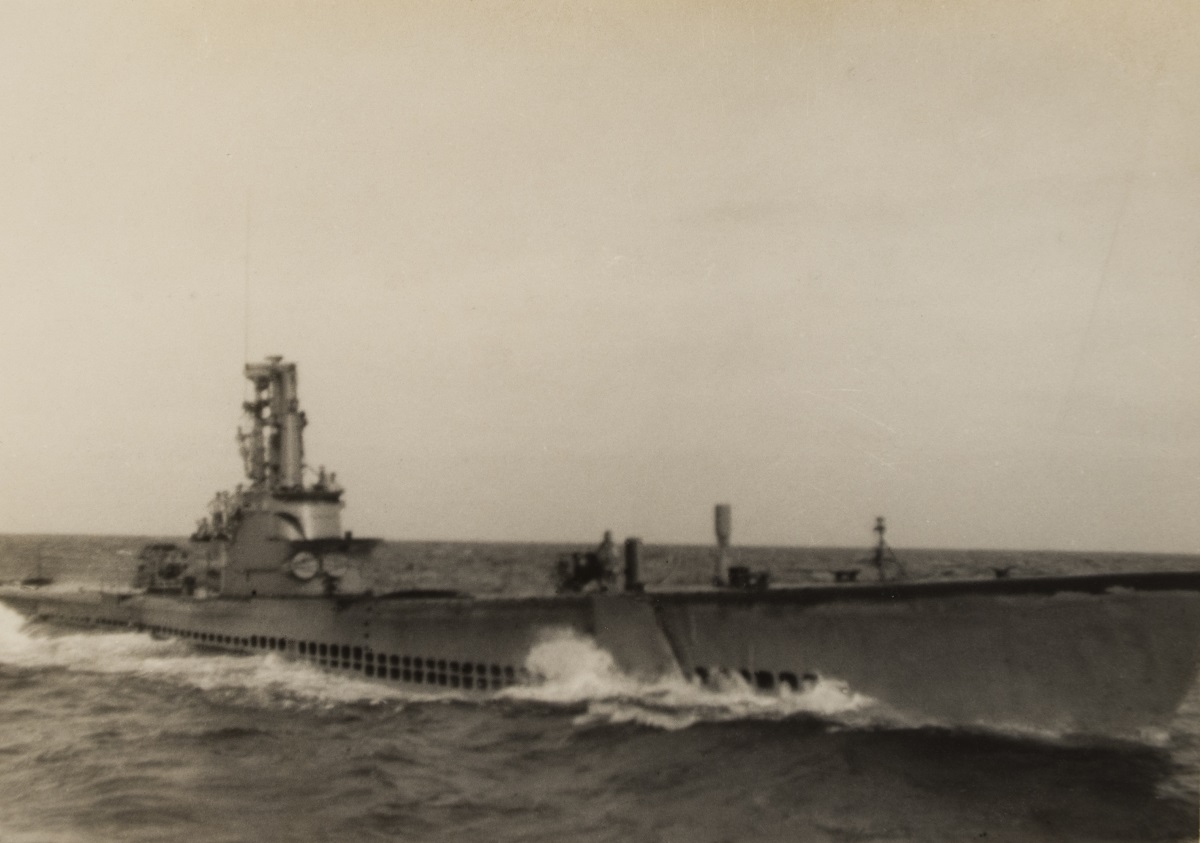For civilians, it is seen in war movies and media associated with the Corps, for Marines it is heard daily; “Oorah” has become a symbol of the USMC. This motivational cry is exchanged continuously among Marines and even veterans of the Corps as a sign of mutual respect for a fellow Marine. But where exactly does it come from?
These long-lasting military traditions are never easy to trace back to an exact beginning, and like the origin of the term G.I. and even Kilroy, “Oorah” is no different. Depending on who you ask, you will hear a different response on the origins of this expression.
One Marine, Staff Sgt. Hugo Monroy said “As far as I had been told, ‘Oorah simply means ‘let’s kill.'” But he also added that “As far as its origin, I really don’t know. I always assumed it was simply a Marine tradition that was passed down from Marine to Marine.”
Some say that “Oorah” is Turkish for kill, which it isn’t (öldürmek is kill in Turkish), while others assert that it is just a Marine take on the Army’s “Hooah.”
But according to historians backed up by the Marine Corps, there is a fairly certain time and place which saw the beginning of “Oorah.”
Oorah Marines!

Unlike the two aforementioned examples of military traditions, “Oorah” is a relatively young one. If you were in the USMC before 1950 you would never have heard “Oorah.” This is because it likely started in the Korean War, which lasted from mid-1950 to mid-1953.
During this conflict Marines from the 1st Amphibious Reconnaissance Company often hitched a ride in a submarine to be covertly taken to their destination. When these submarines would dive, “dive, dive!” would be blasted over the intercom, accompanied by a klaxon alarm.
The klaxon alarm made the well-known “Aarugha” sound – you can probably see where this is going.
As the Marines on board would have heard this alarm, they began imitating the sound for use as a motivational cry during demanding physical tasks. Slowly, “Aarugha” evolved into “Oorah,” which has more punch to it and is easier to say.
By the 1980s and 1990s, the term was in widespread use, especially among drill instructors motivating their recruits.

The Marine Corps themselves subscribe to this version, and it is found in the official Marine Corps Training Reference Manual in a section titled “Aarugha.”
From a simple dive alarm came one of the Marine Corps’ most symbolic and youngest traditions.
Aulton Kohn, the Parris Island Museum information receptionist said “It is the traditions, the history, that makes Marines stand out.” Adding that “The stories passed from drill instructor to recruit, and from Marine to Marine, they add the color to the Corps.”
Oorah!
